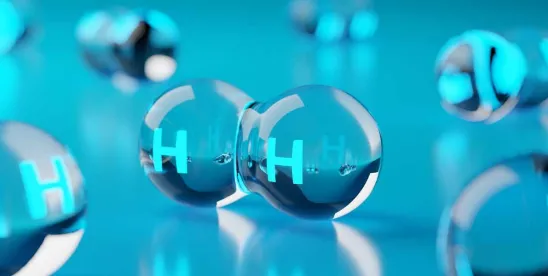The Australian Government has recently announced proposed measures to support the production of hydrogen in Australia utilising renewable energy. These include a new hydrogen production tax incentive and are estimated to amount to support of AU$8 billion over 10 years.
Whilst a number of key details remain to be announced/consulted on, we set out below an overview of these proposed new measures. They come alongside increased global competition to establish domestic hydrogen production and aim to respond to the incentives offered by other jurisdictions – including, in particular, the hydrogen production tax credit offered under the US Inflation Reduction Act (see, for example, our previous alerts here and here).
GOVERNMENTAL SUPPORT
In its Federal Budget for 2024–20251 released on 14 May 2024, the Australian Government announced the following package of measures to support Australian hydrogen production using renewable energy:
- The headline is a hydrogen production tax incentive (discussed below) starting from 1 July 2027 equal to AU$2 per kilogram of hydrogen produced using renewable energy and worth an estimated AU$14.4 billion from 2027–2028 to 2040–2041;
- AU$1.3 billion over 10 years starting in 2024–2025 for an additional round of the Hydrogen Headstart Program, which allows hydrogen projects to bid for revenue support equal to the difference between the cost of production and the market price – the first round closed in 2023 with six projects shortlisted;
- AU$1.7 billion over 20 years starting in 2024–2025 in grants to support innovation, commercialisation, pilot and demonstration projects and early-stage development in priority sectors, including renewable hydrogen production;
- AU$19.6 million Australian Government spending over five years starting in 2024–2025 to deliver the to-be-updated National Hydrogen Strategy, including hydrogen infrastructure planning; and
- AU$10 million to establish and operate a National Hydrogen Technology Skills Training Centre in Victoria, Australia, to promote hydrogen workforce development.
FEDERAL TAX – HYDROGEN PRODUCTION TAX INCENTIVE
The headline measure announced is the introduction of a new Hydrogen Production Tax Incentive, with the following key details:
- A tax offset will be available equal to AU$2 per kilogram of hydrogen produced using renewable energy (uncapped);
- Commences from 1 July 2027 for hydrogen produced in Australia using renewable energy after that date and will run until 30 June 2041 (subject to the next point);
- The tax offset will be available for a maximum of 10 years for each eligible project;
- For a project to be eligible, it must reach a final investment decision by 30 June 2030 (this could apply to existing projects as well); and
- In the latest update, it has been indicated that the tax offset is refundable, which means that after it offsets any tax payable by the project, any excess credits will be paid in cash (although, refer below).2
A number of key details remain uncertain (and are to be subject to consultation at some stage):
- Any structuring or entity requirements – for example, the refundable research and development (R&D) tax offset is only available to companies (and not, for example, trusts or partnerships);
- Critically, the extent to which the tax offset is refundable – whilst there have been no restrictions announced and the Australian Taxation Office (but not the Federal Budget papers themselves) have said it will be refundable, this may be subject to additional requirements. Again, as an example, the refundable R&D tax offset is generally only available for R&D entities with turnover less than AU$20 million per annum (taking into account the turnover of any other entities that have control over, or a 40%+ interest in, the R&D entity); and
- The exact requirements for hydrogen to have been produced from renewable energy – if consistent with the requirements under the Hydrogen Headstart Program, this would require hydrogen produced (including the balance of plant – e.g. supporting and auxiliary systems) to be powered 100% by renewable energy for which there is a renewable energy certificate (or which is from colocated behind-the-meter audited renewable energy generation).
The measure is also subject to passage by the Australian Federal Parliament, where it has faced some opposition from nongovernment parties and for which there is an election due prior to its commencement (which could see changes before it starts).








 />i
/>i
